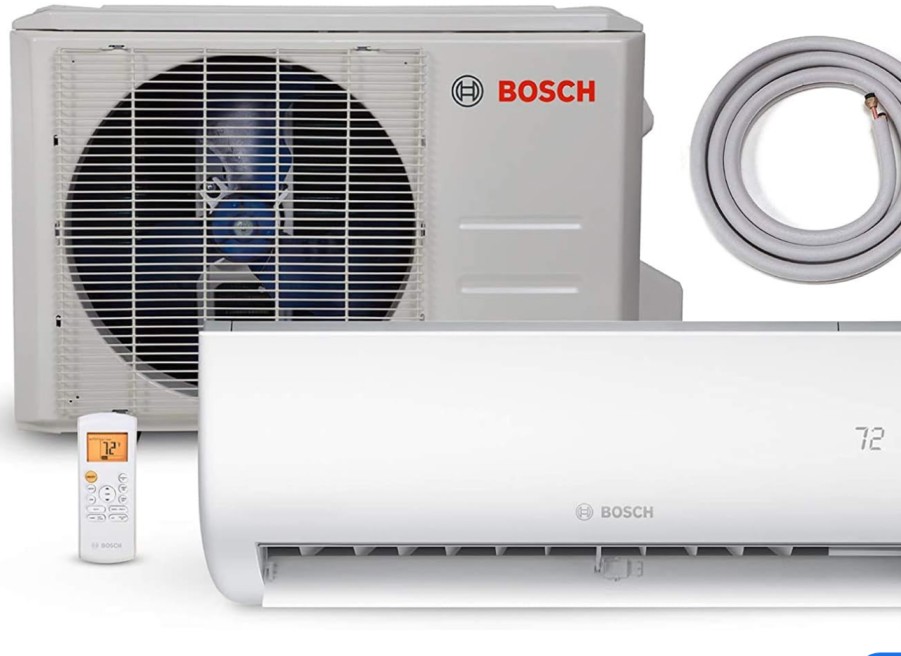Bosch, a renowned brand in the home appliance industry, offers a range of energy-efficient and technologically advanced air conditioners, including their Inverter AC models. When it comes to the question of whether a Bosch Inverter AC requires a stabilizer, it’s essential to understand the working principles of an inverter AC and the importance of voltage stabilization.
Understanding Inverter AC Technology
Inverter ACs, like the Bosch Inverter AC, utilize a variable-speed compressor that adjusts its speed based on the cooling demand. This technology allows the AC to operate at lower power consumption levels, making it more energy-efficient compared to traditional split ACs.
The key features of Bosch Inverter ACs that contribute to their energy efficiency include:
- Variable-Speed Compressor: The compressor in an inverter AC can adjust its speed to match the cooling requirements, rather than running at a fixed speed like in a traditional AC. This allows the AC to consume less power while maintaining the desired temperature.
- Intelligent Temperature Control: Bosch Inverter ACs are equipped with advanced sensors and algorithms that continuously monitor the room temperature and adjust the compressor speed accordingly. This ensures optimal cooling without unnecessary power consumption.
- Reduced Power Consumption: Due to the variable-speed compressor and intelligent temperature control, Bosch Inverter ACs typically consume 30-50% less power compared to traditional split ACs, making them a more energy-efficient choice.
Voltage Fluctuations and Stabilizers

While Bosch Inverter ACs are designed to be energy-efficient, they, like any other electrical appliance, are susceptible to voltage fluctuations in the power supply. Voltage fluctuations can occur due to various reasons, such as power grid instability, sudden load changes, or faulty wiring in the building.
Voltage fluctuations can have a detrimental effect on the performance and lifespan of an air conditioner, including:
- Reduced Efficiency: Voltage fluctuations can cause the compressor and other components to work harder, leading to increased power consumption and reduced efficiency.
- Compressor Damage: Sudden voltage spikes or drops can put stress on the compressor, potentially leading to premature wear and tear or even complete failure.
- Electronic Component Failure: The sensitive electronic components within the AC, such as the control board and sensors, are vulnerable to damage from voltage fluctuations, which can result in malfunctions or complete breakdowns.
To mitigate the risks associated with voltage fluctuations, it is highly recommended to install a voltage stabilizer for any air conditioner, including the Bosch Inverter AC. A voltage stabilizer is a device that regulates the incoming voltage, ensuring a stable and consistent power supply to the AC unit.
Benefits of Using a Voltage Stabilizer with Bosch Inverter AC
- Protects Against Voltage Fluctuations: A voltage stabilizer monitors the incoming voltage and automatically adjusts it to a safe and consistent level, preventing damage to the AC’s components from sudden voltage spikes or drops.
- Extends Lifespan: By maintaining a stable voltage supply, a voltage stabilizer can significantly extend the lifespan of the Bosch Inverter AC, as the components are not subjected to the stress caused by voltage fluctuations.
- Improved Efficiency: With a stabilized voltage, the Bosch Inverter AC can operate at its optimal efficiency, consuming less power while maintaining the desired cooling performance.
- Warranty Compliance: Many air conditioner manufacturers, including Bosch, recommend the use of a voltage stabilizer to ensure the validity of the product warranty. Using a Bosch Inverter AC without a stabilizer may void the warranty in case of voltage-related issues.
Choosing the Right Voltage Stabilizer for Bosch Inverter AC
When selecting a voltage stabilizer for your Bosch Inverter AC, it’s essential to consider the following factors:
- Capacity: The voltage stabilizer should have a capacity that matches or exceeds the power rating of your Bosch Inverter AC. This ensures that the stabilizer can handle the AC’s power requirements without overloading.
- Voltage Range: The stabilizer should be able to handle the voltage fluctuations in your local power supply. Check the input voltage range and ensure it covers the typical voltage variations in your area.
- Response Time: Look for a voltage stabilizer with a fast response time, as this will allow it to quickly adjust the voltage to the desired level, protecting the AC from sudden spikes or drops.
- Compatibility: Ensure that the voltage stabilizer is compatible with your specific Bosch Inverter AC model. Some manufacturers may provide recommendations or even offer stabilizers designed specifically for their air conditioners.
- Additional Features: Consider voltage stabilizers with features like overload protection, automatic voltage regulation, and built-in surge protection, as these can provide additional safeguards for your Bosch Inverter AC.
By installing a compatible and high-quality voltage stabilizer, you can ensure the optimal performance, energy efficiency, and longevity of your Bosch Inverter AC, even in the face of voltage fluctuations.
Conclusion
In conclusion, while Bosch Inverter ACs are designed to be energy-efficient and have lower power consumption compared to traditional split ACs, it is still highly recommended to install a voltage stabilizer to protect the unit from voltage fluctuations and ensure its long-term reliability and performance. By investing in a suitable voltage stabilizer, you can maximize the benefits of your Bosch Inverter AC and enjoy years of comfortable and energy-efficient cooling in your home or office.
Reference:
– Does an Inverter AC Require a Voltage Stabilizer? – Aysonline.pk
– Fully Automatic Front Load Voltage Stabilizers – Flipkart
– Split AC vs Inverter AC: Find The Differences – myG
